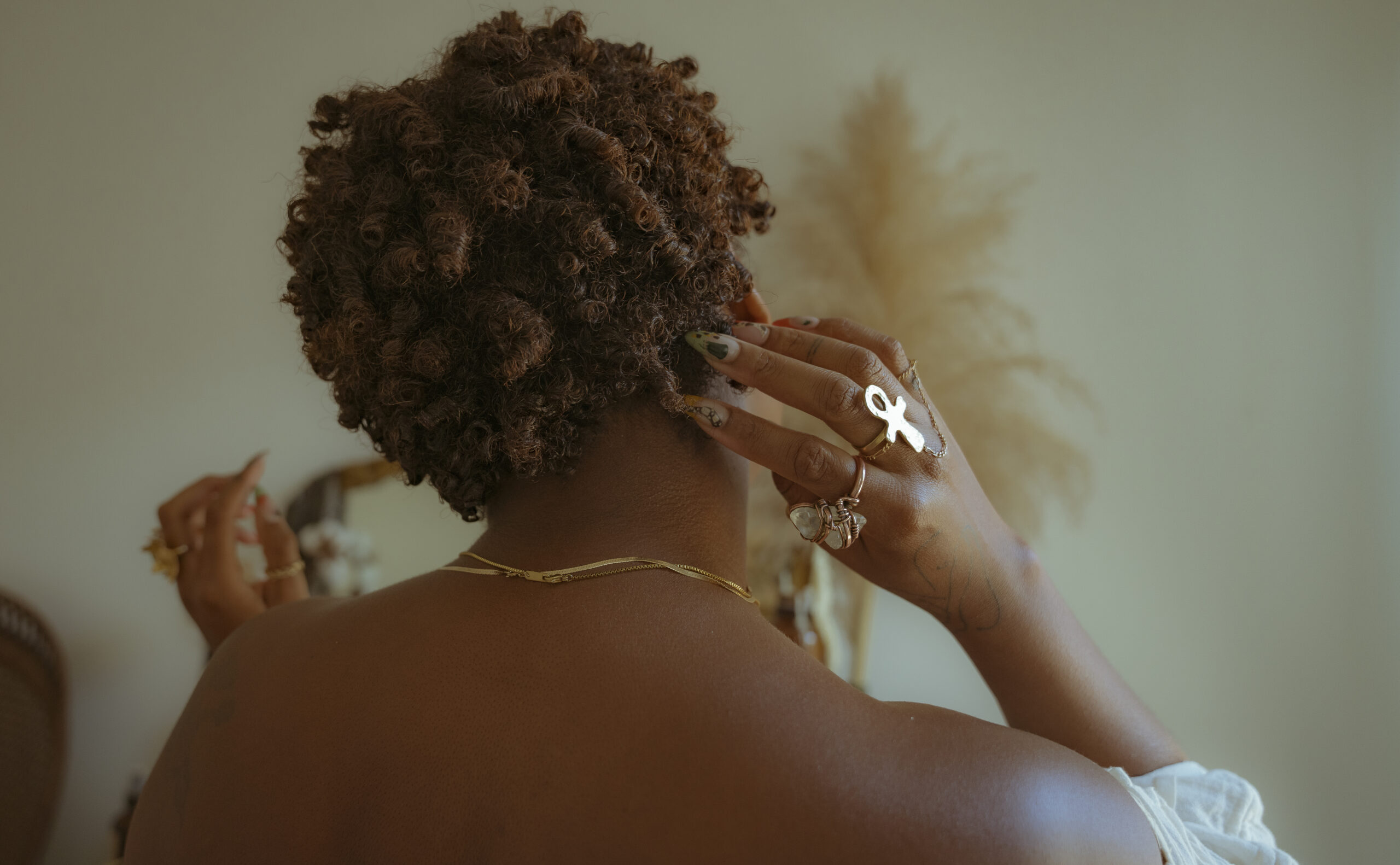Four members of Black Women Photographers, a global community, have come together for Our Black Experience, an exhibition at Galerie Kitsuné in New York City.
Poochie Collins has worked with Leeza Joneé many times—she’s photographed her with 120 color film and with 35mm hand-developed black-and-white film. Sometimes, she’s adorned Joneé in jewels, and sometimes she’s captured candid moments out and about in Brooklyn.
This time, however, Collins chose an intimate setting, photographing Joneé at home as she ran a brush through her hair. It’s a portrait of her friend, but it’s also an expression of self-love and care.
“I documented an intimate, raw, and personal story which was my experience as a Black woman in admiration of my crown,” the artist tells. “Because I prefer to be a voyeur and not a matter of focus, the multidisciplinary artist Leeza Joneé, my dear sister-friend, agreed to let my vision speak through her. With our ancestors and hearts guiding us, Leeza and I created this series in her beautiful home somewhere in Brooklyn.”
Step into Galerie Kitsuné this month, and you’ll see Collins’s portraits next to a series of portraits by Kaylah Sambo, titled Black Femininity. Continue along that same wall to discover Yolanda Hoskey‘s soft and colorful floral portraits, which together create a singular visual reference for the idea of “giving someone their flowers.”
Going full circle from there, Zakiyyah Woods presents photographs from The women of my blood were…, a project inspired by her family history. “These photos are a part of an ongoing family discovery project that I began several years ago in order to confirm or dispel the rumors that my maternal grandmother was 100% indigenous,” Woods says.
“These images reflect my journey towards education and ‘meeting’ the women that existed before me through record discovery and making contact with living relatives. Finding them allows me to continue finding myself as a mother, sister, friend, woman.”
The four bodies of work are different, but one common thread becomes this idea of discovery and rediscovery. These photographers exist in conversation with their models, with one another, and with history itself. “Our voices have been silenced for centuries, but now we are taking control of our narrative and how we are viewed,” Polly Irungu, the Founder of Black Women Photographers, explains.
Black women have been sharing stories through the lens for generations, even in the face of intolerable inequality. Consider this: when the photographer Florestine Perrault Collins (1895-1988) made history by opening her studio in New Orleans in 1920, she was one of 101 Black women photographers registered in that year’s US census.
One generation helped blaze the trail for the next, who, in turn, forged paths of their own and helped pave the way for the many, many more who came after. A century down the road, a photography exhibition by, for, and about Black women feels like an act of resistance and celebration decades in the making.
“‘Come as you are, because who you are is enough’ are words I choose to live by and express to the world visually,” Poochie Collins writes. “I dedicate my art to all the Black voices, faces, and spaces. Despite the constant war on our bodies and existence, we will continue to exude love and joy and forever be multi-dimensional. My goal is always to document this truth.”
See Our Black Experience at Galerie Kitsuné through February 26th. Black Women Photographers will present in-person events every Thursday throughout the exhibition’s run.



Leave a Reply